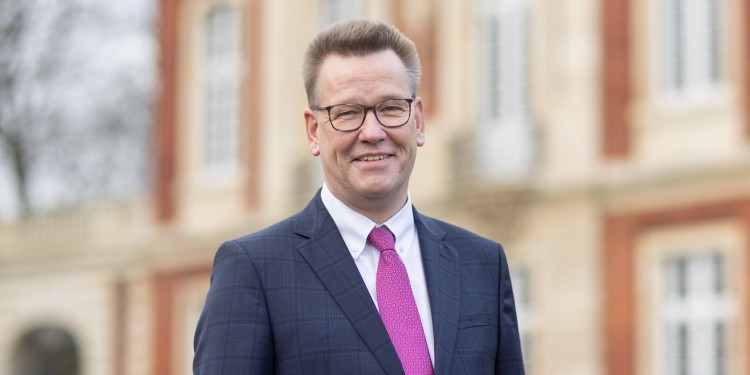
"We stand ready to help Ukrainians at Münster University"
The Russian invasion of the Ukraine has shaken people both in the city and at the University of Münster. Norbert Robers spoke with Rector Prof. Johannes Wessels about research collaborations and possible help for Ukrainians and Russians at the University.
Does Münster University also have academic contacts with Ukrainian and Russian partners?
Yes, at present there are four collaborations with Russian partners, of varying types and covering a large number of faculties. On the other hand, there are currently no research projects with Belarus.
Both the German Research Foundation and the North Rhine-Westphalian Ministry of Science are advocating a suspension of funding projects with Russia. How will Münster University react?
The German Academic Exchange Service and the German Rectors’ Conference are currently drawing up various guidelines on which forms of collaboration will now be put on ice or not advertised. If any collaborations which Münster University has are affected, we will not be treading any special path. That means that we will not be embarking on any new collaborations, and we will be putting existing ones on ice. We are also stopping exchanges of students and academics to and from Russia. On the other hand, we should not forget that many Russian academics are demonstrating moral courage and a sense of political responsibility, positioning themselves against the Russian President. This is why we are not planning any further sanctions against visiting academics or students from Russia. In times of a failure of political diplomacy, especially, dialogue between scientific disciplines is extremely valuable as a counteracting force in society.
How many students and staff are there at the University – and do you have any information on whether there are currently any members of the University in Ukraine or Russia?
As regards the second point: our information is that there are currently three students from Münster University in Russia, on an exchange visit, and we are in contact with them. There are currently 62 undergraduates and PhD students from Ukraine enrolled at Münster University, plus 99 from the Russian Federation and 13 from Belarus. In addition, around 50 academics and other staff from Russia, Ukraine and Belarus are working at the University. I would just like to stress that the way Münster University acts towards Russian students and staff will be no different from how it acts towards everyone else, as long as there are no legal requirements to the contrary.
Ukrainians – and undoubtedly many Russians too – who are currently in Münster and at the University are very worried because of the war. What can and will the University do for them?
We have at Münster University tried and tested advisory structures for different groups of people. The International Office are the first people to contact for students and visiting academics; for PhD students it’s the Graduate Centre; and University staff should contact the HR Department. We advise all those affected to contact these people if they have any questions or problems. Also, we at the University are in regular contact with the city of Münster and with the political representations of Ukraine. Our attention at the moment is on our students and staff from Ukraine. We stand ready at all times to help and support them. At the same time, though, we mustn’t lose sight of the concerns of Russian students and academics who are also affected by the sanctions. After all, we do not wish to make them collectively responsible for actions by the Russian regime which transgress international law.
